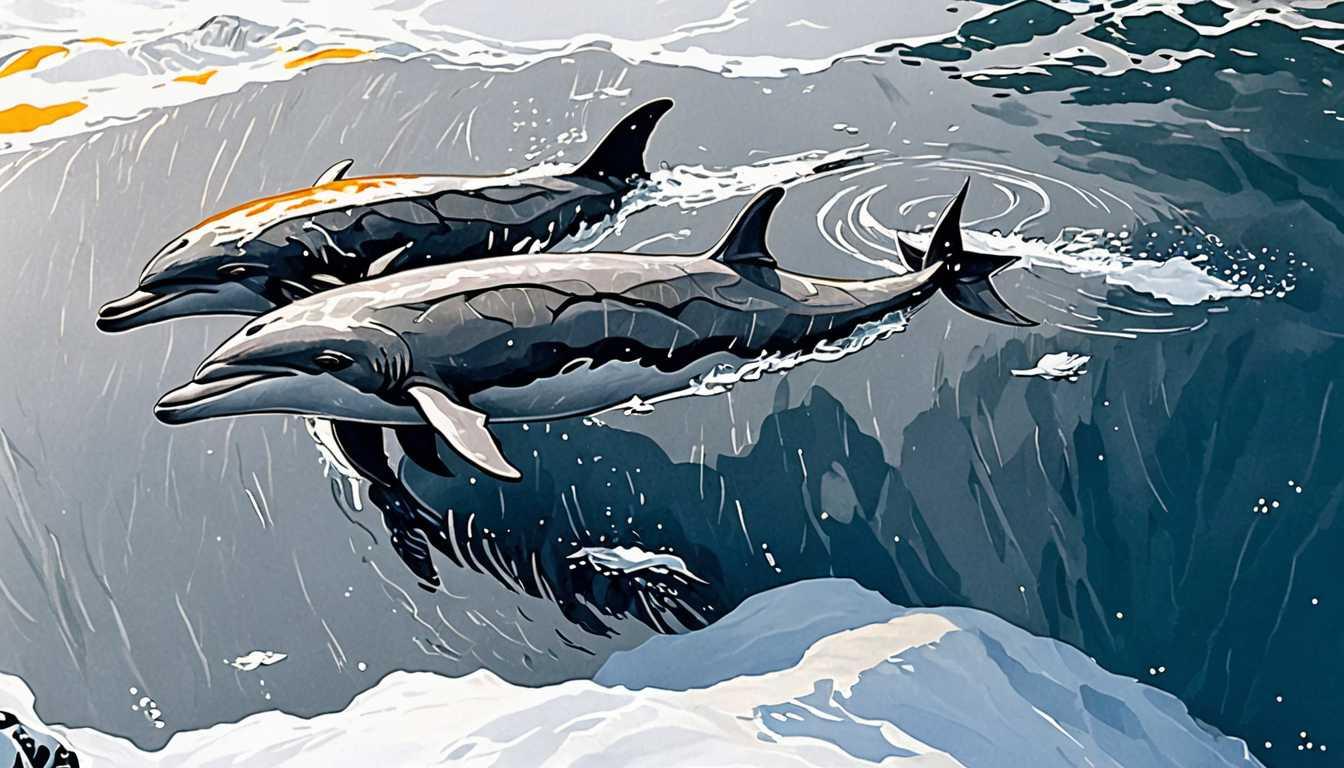Echoes of the 'Great Dying': A Modern Warning
February 2023
University of Bristol
Introduction
Dive into the past with the University of Bristol's latest study, uncovering how the 'Great Dying'—the biggest mass extinction event our planet has ever seen—can teach us about today's biodiversity crisis. By examining ancient marine ecosystems, researchers reveal a chilling parallel between the Permian-Triassic extinction's ecological collapse and our current environmental challenges. With humor aside, this isn't just about ancient history; it's a wake-up call for the present. Let's explore what fossils from South China and simulated food webs tell us about surviving a global crisis!
READ FULL ARTICLEWhy It Matters
Discover how this topic shapes your world and future
Unraveling Earth's Ancient Secrets to Save Our Future
Imagine diving deep into Earth's past, back to a time when the planet experienced its greatest loss of life, an event so catastrophic it's known as the 'Great Dying'. This journey isn't just about exploring ancient mysteries; it's a critical mission to understand our present and protect our future. The 'Great Dying' wasn't just a dramatic chapter in Earth's history; it's a warning signal flashing urgently today. As we witness biodiversity loss at an alarming rate, much like the early stages of that ancient extinction, the stakes couldn't be higher. Understanding this event helps us grasp the importance of every species in maintaining the balance of ecosystems. It's like piecing together a complex puzzle where every living creature plays a role in sustaining life on Earth. For you, this isn't just a history lesson; it's a call to action to safeguard our planet's rich tapestry of life, ensuring it thrives for generations to come.
Speak like a Scholar
Biodiversity
The variety of life in the world or in a particular habitat or ecosystem. Think of it as the vast library of life on Earth, where every species is a unique book.
Ecological collapse
When an ecosystem undergoes a dramatic decline in its number of species and functional diversity, leading to its inability to maintain its structure and function. Picture a house of cards falling down because too many cards have been removed.
Guilds
Groups of species that exploit resources in similar ways. Imagine a team where each member has a different role, but they all work towards the same goal.
Food webs
The complex network of predator-prey relationships in an ecosystem. It's like a map showing who eats whom in the wild.
Functional redundancy
The ecological concept that multiple species can perform similar roles in an ecosystem. Think of it as having backups in a soccer team, so the game can go on even if a player is injured.
Tipping point
A critical threshold at which a small change can lead to significant and often irreversible effects on an ecosystem. It's like the moment a seesaw tips over to one side after adding just a little more weight.
Independent Research Ideas
Comparing past and present
Investigate the parallels between the 'Great Dying' and today's biodiversity crisis. What lessons can we learn from the past to avert a future ecological collapse?
The role of guilds in ecosystem recovery
Dive into how different species groups recover after an extinction event. How do surviving species reorganize to rebuild ecosystems?
Food webs under stress
Examine how modern-day food webs are changing due to human activities. What happens to an ecosystem when key species are lost?
The economics of ecosystems
Explore the concept of functional redundancy in economic terms. How does the diversity of businesses in a market relate to the diversity of species in an ecosystem?
The science of tipping points
Delve into the science behind ecological tipping points. Can we predict and prevent the point of no return for endangered ecosystems?
Related Articles

Why Whales Became Ocean Giants
March 2023
Stanford University

Seabirds' Last Stand: A Climate Lifeline
December 2022
University of Cambridge

Turtles: The Unexpected Storm Predictors
July 2022
Smithsonian Magazine

The Methuselah of Hedgehogs Uncovered
February 2023
Phys Org

Everest: A Peak of Biodiversity
September 2022
National Geographic